The 2024 NBA draft class was initially perceived as one of the less impactful in recent memory. However, despite this modest outlook, the past season revealed several promising talents who have settled into their roles and demonstrated significant long-term potential. Players like Rookie of the Year Stephon Castle, drafted fourth overall, made an immediate splash, while Matas Buzelis, the eleventh pick, displayed mid-season flashes of his burgeoning capabilities. Many other prospects, including third overall pick Reed Sheppard, are now slated for larger responsibilities in their sophomore campaigns. This article highlights the ten most compelling second-year players to monitor as they approach the 2025-26 NBA season, examining their rookie achievements and what advancements to anticipate in their crucial second year.
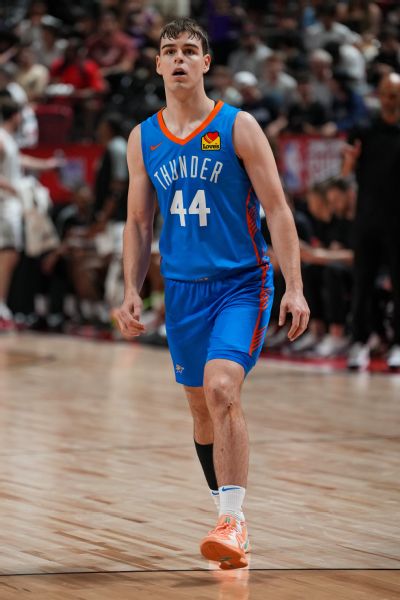
10. Nikola Topic, Oklahoma City Thunder
Rookie Year Overview:
Nikola Topic technically spent his rookie year sidelined, winning a championship with the Thunder without playing due to a torn ACL. Oklahoma City`s roster depth allowed them to effectively defer his debut. Despite this, his potential influence on the defending champions earns him a spot on this list, as he will officially be a rookie next season.
Reason for Ranking:
My interest in Topic stems from pure curiosity. Given Oklahoma City`s extensive backcourt talent, his initial role is uncertain. However, his Summer League performances offered glimpses of his playmaking prowess (averaging 7.3 assists over three games) and high basketball IQ, suggesting he could earn backup minutes behind Shai Gilgeous-Alexander. Whether Topic develops into a long-term rotation player or becomes a future trade asset for the Thunder remains to be seen over the next year or two, but his positive flashes make him a player worth observing as the reigning champions continue to build.
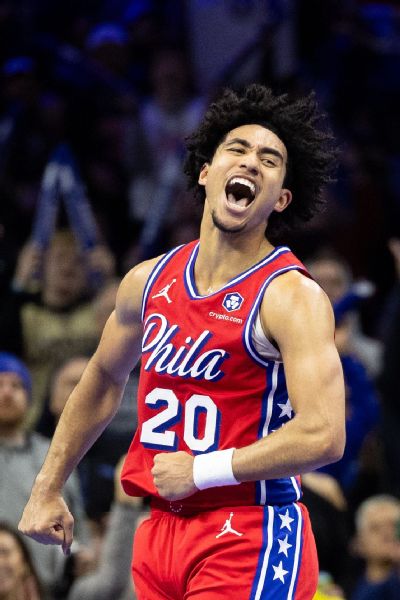
9. Jared McCain, Philadelphia 76ers
Rookie Year Overview:
Jared McCain showed significant promise in a limited 23-game stint before a torn left meniscus ended his season in December. In those games, he averaged 15.3 points on 46% shooting over 25.7 minutes. Despite playing for an injury-plagued Sixers team with a 24-58 record, his initial performance after being drafted 16th overall was impressive, as his natural scoring ability and outside shooting quickly adapted to the NBA level.
Reason for Ranking:
The intrigue surrounding McCain`s sophomore campaign centers on his recovery from injury and how the 76ers will manage their guard rotation, which now includes Tyrese Maxey and 2025 third overall pick VJ Edgecombe. Philadelphia must find synergy among these three players, with McCain ideally fitting a hybrid guard role long-term. A critical concern for the Sixers will be the defensive vulnerability of this smaller perimeter trio, especially considering Joel Embiid and Paul George`s age and injury histories. This upcoming season is pivotal for McCain to solidify his position as a core component of the 76ers` future plans.
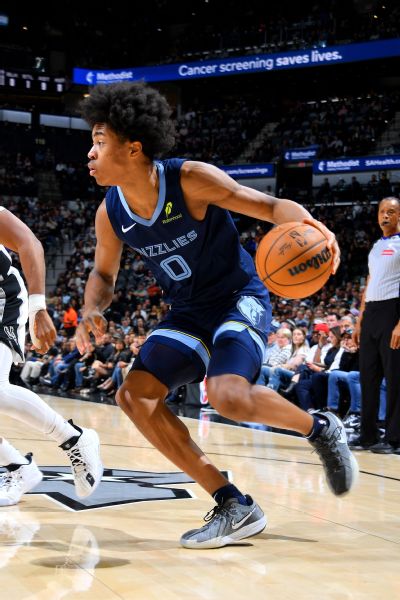
8. Jaylen Wells, Memphis Grizzlies
Rookie Year Overview:
Jaylen Wells emerged as potentially the most valuable pick of the 2024 draft, earning a spot on the All-Rookie first team. Drafted 39th by Memphis, he averaged 10.4 points and started 74 games. Initially scouted as a catch-and-shoot specialist from Washington State, Wells not only converted 35% of his three-pointers but also demonstrated unexpected defensive versatility, embracing challenging matchups and quickly establishing a significant role.
Reason for Ranking:
Wells`s impressive rookie season partially mitigated the impact of the Grizzlies` trade of Desmond Bane to the Orlando Magic. With Bane`s departure, Wells is poised for an expanded scoring role, absorbing many of the touches previously allocated to Bane as a shooter and secondary initiator. As a late-developing former Division II player, turning 22 in August, Wells might possess untapped potential. Memphis will likely focus on whether he can broaden his offensive contributions. While his limitations as a primary ball-handler might cap his ultimate ceiling, his demonstrated abilities suggest he could continue to exceed expectations by improving both his scoring efficiency and volume.
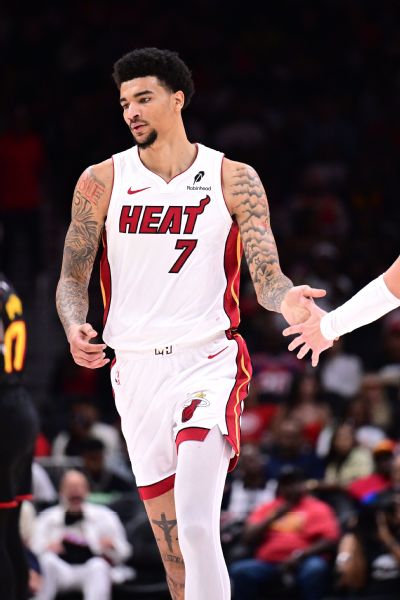
7. Kel`el Ware, Miami Heat
Rookie Year Overview:
Kel`el Ware earned All-Rookie second team honors after a midseason surge saw him produce several impactful performances and ultimately secure a starting position. He proved to be a talented, contemporary center capable of rim protection, agile footwork, and consistent spot-up three-point shooting. Drafted 15th overall, his immediate readiness to contribute exceeded initial expectations.
Reason for Ranking:
Ware`s ability to unlock his significant potential rapidly is a crucial factor in Miami`s ongoing team restructuring. Despite a successful rookie year, it was noteworthy when Heat coach Erik Spoelstra publicly encouraged Ware to `improve his professionalism` recently. These comments align with pre-draft perceptions, as many NBA executives and scouts had questioned his motor and high-level engagement – making his selection by the Heat, an organization known for valuing intangibles, somewhat surprising. Miami clearly believes they can maximize Ware`s capabilities, and the upcoming season will reveal if he can build on his initial success to establish himself firmly as a starting-caliber NBA center.
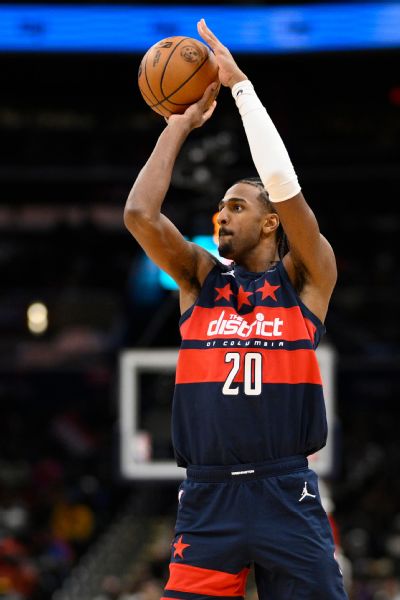
6. Alex Sarr, Washington Wizards
Rookie Year Overview:
The second overall pick, Alex Sarr, earned All-Rookie first team honors, though his game remains a work in progress. Playing his entire debut season at 19, he averaged 13 points and 6.5 rebounds, hinting at his substantial defensive potential with 1.5 blocks per game. Washington`s commitment to developing its young roster allowed Sarr to largely appear as a foundational piece for the future, even with unpolished offensive skills.
Reason for Ranking:
Despite Washington acquiring a significant portion of the 2024 first-round picks, Sarr continues to represent the highest upside. While his court vision hasn`t yet matched his impressive physical attributes, his defensive tools are expected to translate well, making him a mobile shot-blocker and formidable paint protector. After a year of NBA experience, further improvement is anticipated. Sarr`s offensive game saw predictable inconsistencies, with a field goal percentage of just 39.4%. However, he demonstrated unexpected passing ability for a rookie center, averaging 2.4 assists per game. The Wizards have encouraged him beyond a simple rim-runner role, allowing him to explore his playmaking. While his overall statistics aren`t stellar, and his rebounding for his size is subpar, Sarr has a genuine chance for comprehensive improvement in his second year, especially if Washington`s young core collectively develops. His participation in France`s EuroBasket squad in August, benefiting from the absence of Victor Wembanyama and Rudy Gobert, presents a significant opportunity for exposure.
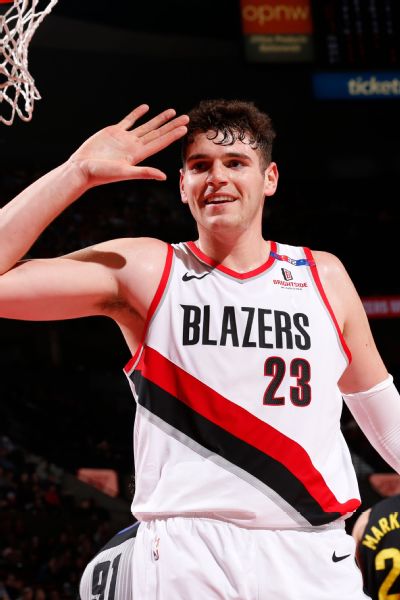
5. Donovan Clingan, Portland Trail Blazers
Rookie Year Overview:
Donovan Clingan topped all rookies in blocks per game (1.6) and earned All-Rookie second team honors, posting averages of 6.5 points and 7.9 rebounds in just 19.8 minutes while shooting 53%. His efficiency on a per-minute basis and profound defensive presence indicate a promising future as a foundational rim protector for the Blazers.
Reason for Ranking:
Portland appears to have paved the way for Clingan and fellow draftee Yang Hansen to split minutes at center next season, with Robert Williams III potentially a trade candidate on his expiring deal. The division of playing time will be intriguing to observe. Clingan merits the majority of minutes but must enhance his conditioning to sustain extended play. His starting the final 27 games of the season strongly suggests he is next in line for a prominent role. Additionally, it will be interesting to see if the Blazers experiment with tandem lineups featuring both Clingan and Yang. While a double-big pairing might seem awkward on paper, Portland`s long-term commitment to both players provides a rationale for exploring this combination. Overall, Clingan is set for an increased role and could swiftly establish himself among the NBA`s elite interior defenders.
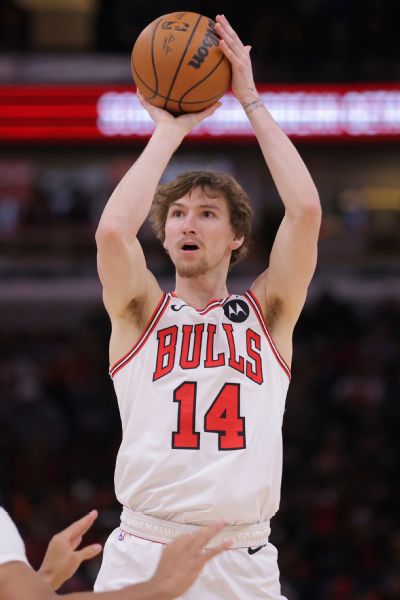
4. Matas Buzelis, Chicago Bulls
Rookie Year Overview:
Matas Buzelis made a midseason impact for the Bulls, proving to be an excellent value pick at 11th overall. He started the final 31 games of the season, averaging an impressive 31 points on 47% shooting during that span. This performance earned him a place on the All-Rookie second team and solidified his status as a vital component of Chicago`s future plans.
Reason for Ranking:
Buzelis was once considered a potential first overall pick in the 2024 draft class, highlighting his considerable upside as a tall, talented perimeter scorer. As he develops physically and refines his shooting, Buzelis possesses immense room for growth both in skill and in his role. With the Bulls consistently hovering around the play-in tournament, their most promising path forward likely involves Buzelis developing into a star. While a full star turn might not occur in a single offseason, Chicago`s dedication to an up-tempo style should benefit him. He is expected to handle the ball more in open court situations, allowing him to expand his shot-creation abilities for himself and his teammates. The Bulls are currently navigating a contract dispute with Josh Giddey, but his anticipated return and playmaking presence should further aid Buzelis`s integration. At just 20 years old, the magnitude of his sophomore leap is arguably the most significant overarching narrative for the Bulls entering the new season.
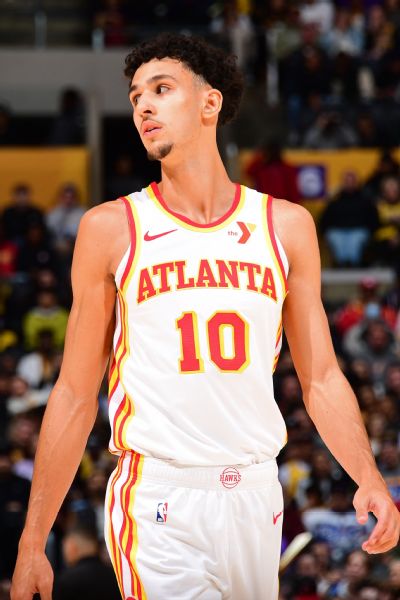
3. Zaccharie Risacher, Atlanta Hawks
Rookie Year Overview:
Zaccharie Risacher justified Atlanta`s decision to select him first overall in a draft class notably lacking a unanimous top prospect. Although he didn`t secure Rookie of the Year, he was among the few rookies to make a substantial contribution to a playoff-contending team, shooting 45.8% from the field and 35% from beyond the arc, starting 73 of 75 games. Entering the league at just 19, he provided immediate value, raising questions about the extent of his future development.
Reason for Ranking:
The Hawks bolstered their roster this offseason with the additions of Kristaps Porzingis and Nickeil Alexander-Walker, also securing a valuable 2026 draft pick from New Orleans by trading down from the 13th spot. With Trae Young and Dyson Daniels approaching contract extensions, Atlanta faces pressure to win immediately while simultaneously undergoing a long-term organizational assessment. A key aspect of Risacher`s value lies in his versatile skill set—his shooting, perimeter defense, and positional size at small forward seamlessly integrate into nearly any lineup configuration. Given this, Risacher`s ongoing progression as a scorer is crucial for the Hawks. Atlanta possesses ample playmaking, and Risacher`s off-ball proficiency means they aren`t forced to rush his development as a primary ball-handler. However, providing him with opportunities to develop his creation skills would benefit the team long-term. Observing his increased comfort operating off the dribble, executing pull-up jumpers, and creating for others will be vital. Such development could elevate him from an excellent role player to someone who far exceeds initial expectations for a top pick. How aggressively Atlanta fosters this aspect of his game will be a key storyline entering the next season. While he may not become a typical No. 1 overall pick-caliber franchise player without considerable growth, he has the potential to significantly surpass the modest expectations often associated with top picks. His participation with the French national team at EuroBasket in August could provide an early glimpse into his offseason improvements.
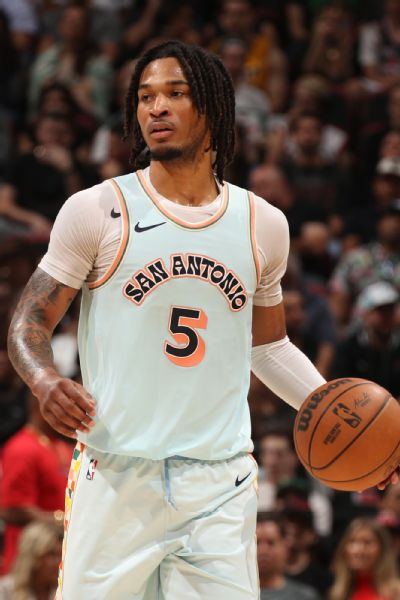
2. Stephon Castle, San Antonio Spurs
Rookie Year Overview:
Stephon Castle`s impressive inaugural season culminated in him winning Rookie of the Year. He averaged 14.7 points and 4.1 assists across 26.7 minutes, starting 47 games for the Spurs. As anticipated, his efficiency was a work in progress (42.8% FG, 28.5% 3P), but his defensive consistency was notable, and his performance improved post-All-Star break, thriving in the freedom San Antonio granted him.
Reason for Ranking:
As San Antonio aims to construct a championship contender around Victor Wembanyama, whose return from a blood clot seems assured, a critical element is the synergy among the Spurs` guards. The acquisition of De`Aaron Fox naturally reduced Castle`s primary ball-handling responsibilities. Furthermore, an unexpected leap in the lottery secured the second pick, Dylan Harper, adding a third key guard to the mix. While this is an exciting roster enhancement, it necessitates adjustments from all three players. Castle, still far from his peak, is arguably the most natural fit for a versatile two-way role among the trio, owing to his physical dimensions, defensive acumen, and unselfish offensive approach. He must significantly improve his long-range shooting to truly thrive off-ball, especially considering San Antonio`s projected lineups. The Spurs will need to strategically stagger their guards to both secure wins and optimize comfort for Harper and Castle. Given these contextual shifts – and the heightened urgency to make the playoffs as Wembanyama`s career progresses – Castle`s adaptability and ability to refine his game will heavily influence San Antonio`s trajectory and his importance to the team`s evolving identity.
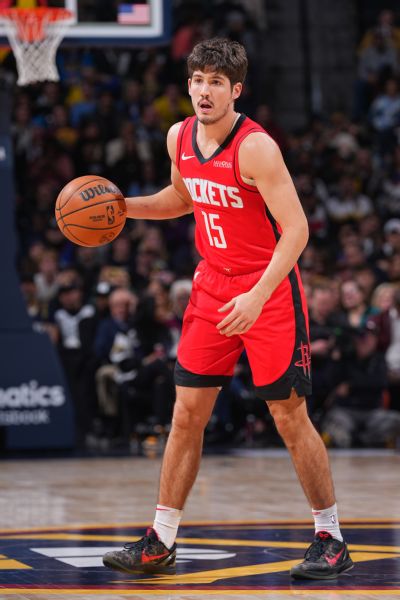
1. Reed Sheppard, Houston Rockets
Rookie Year Overview:
Despite considerable pre-draft anticipation, Reed Sheppard`s rookie season offered limited highlights, as he played in just 51 games and averaged 12 minutes for a deep Rockets squad. Nevertheless, he did showcase his scoring potential with a 49-point G League performance, and Houston remains optimistic about his future as he prepares for increased playing time on a team with high ambitions.
Reason for Ranking:
Houston`s trade of Jalen Green in the Kevin Durant deal implicitly created substantial backcourt minutes for Reed Sheppard, who is now projected to have a significant role alongside Fred VanVleet and Amen Thompson. The Rockets` genuine title aspirations may depend more on the development of their young core—Sheppard, Thompson, and Jabari Smith Jr. are all slated for major responsibilities—than on Durant`s immediate impact. Although his Summer League showing wasn`t particularly standout, Sheppard warrants optimism. He appears to be stepping into an ideal role as a secondary ball-handler, facilitator, and floor-spacer, capable of both operating off-ball and simplifying plays for Houston`s star players. His shooting will be critical alongside Thompson and Alperen Sengun. However, he must also maintain defensive effectiveness, as the Rockets will sacrifice some perimeter size when VanVleet and Sheppard share the court. While Sheppard`s innate ability to win possessions aids his defense, he isn`t a primary deterrent for opposing shooters. The fundamental reason for his top ranking is that his true impact remains largely unseen, and his potential influence on Houston`s standing this season is immense.

